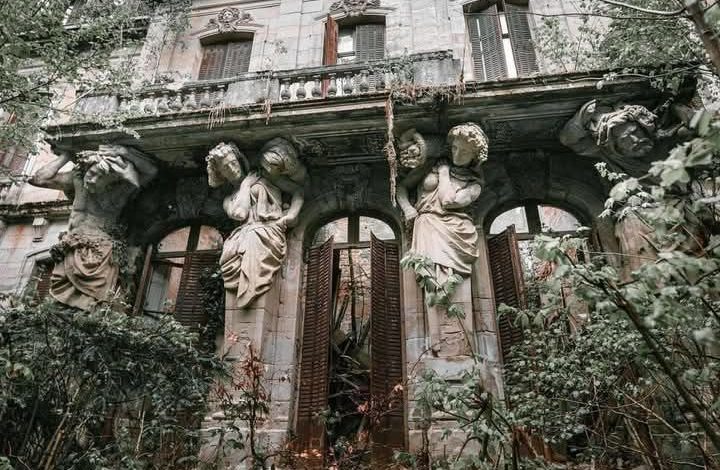Château des Caryatides – France’s Forgotten Mansion of Sculpted Elegance and Decay


This hauntingly beautiful mansion is the enigmatic Château de Caryatides, an abandoned 19th-century neo‑classical gem in France, renowned for its ornate caryatid sculptures that once supported its grand balcony.
 Origins & Architecture
Origins & Architecture
-
Built in the mid‑1800s, commissioned by the widow of a prominent textile industrialist to honor her late husband—reflecting both wealth and artistic ambition
-
The facade features four monumental sculptural supports: two female figures (caryatids) flanked by two male figures (telamons or atlantes), all of which were originally crafted in plaster—some prototypes now preserved in the Louvre
-
Designed without restraint, the château’s neoclassical elegance and sculpture-rich facade earned it recognition as a historic monument even in its abandoned state .
 Abandonment & Present Condition
Abandonment & Present Condition
-
Vacant since the 1970s, the mansion has been left to the elements, with ivy and undergrowth gradually enveloping its once-opulent entrance
-
Despite decades of neglect, the caryatids remain impressively intact—though time and nature continue their inexorable reclaiming.
 Why It Fascinates
Why It Fascinates
-
A dramatic embodiment of 19th-century opulence turned melancholy ruin, the château captivates both urban explorers and architecture lovers.
-
Its striking facade, framed by overgrown foliage, creates a scene straight out of a gothic novel—columns held aloft by silent stone figures.
-
The connection to the Louvre (via the original plaster models) roots it in France’s broader artistic heritage, hinting at stories of ambition, loss, and the passage of time.
In short: Château de Caryatides stands as a silent monument to grandeur and decay—a mid‑19th‑century memorial steeped in sculptural artistry, now surrendered to nature but still resonant with emotional and aesthetic power.




